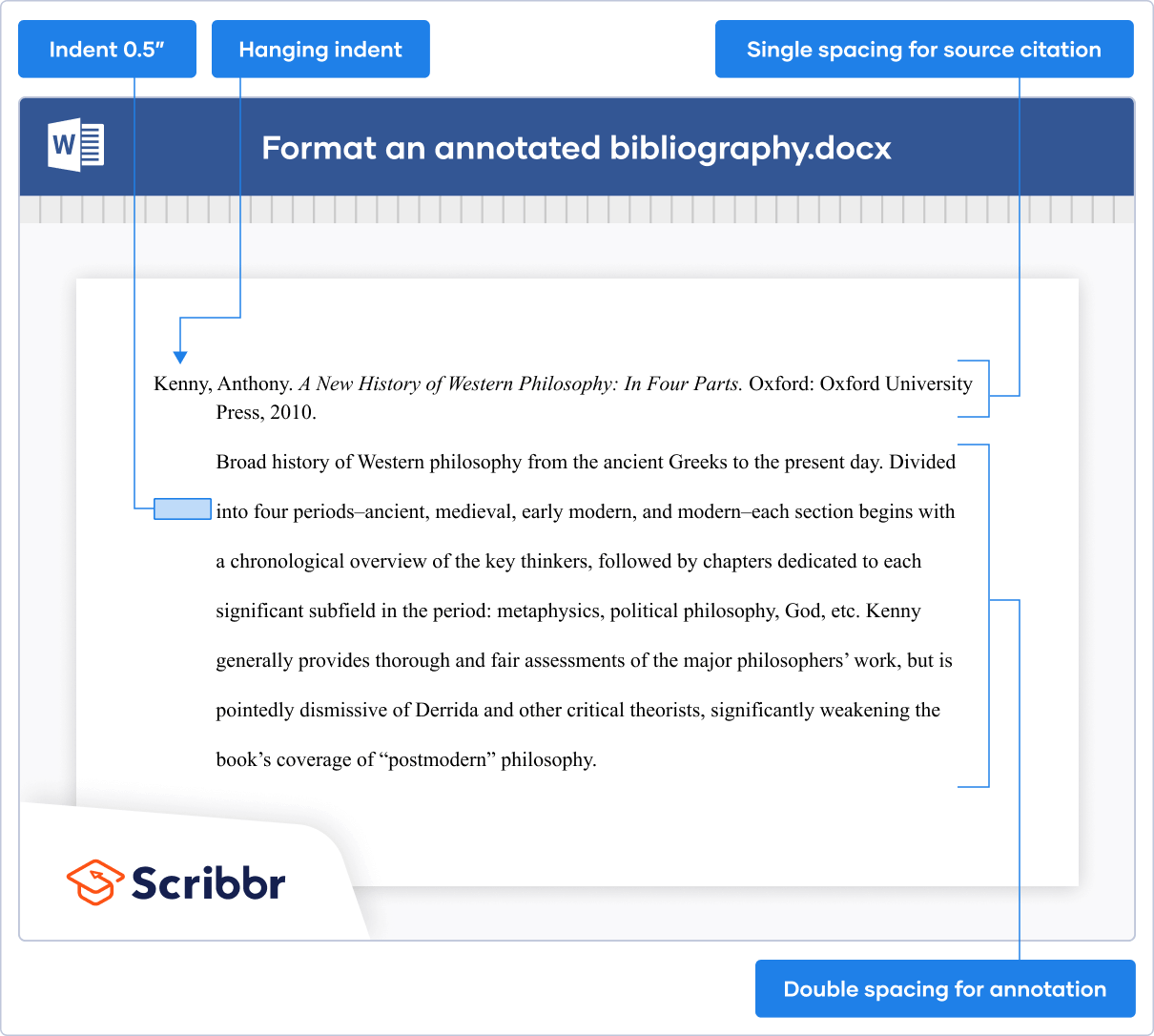How to Write an Annotated Bibliography in Chicago/Turabian Style
While a standard Chicago style bibliography provides publication details of your sources, an annotated bibliography also provides a summary (and often an evaluation) of each source.
Turabian style, a version of Chicago style specifically designed for students and researchers, provides formatting guidelines for an annotated bibliography. A typical entry might look like this:
Kenny, Anthony. A New History of Western Philosophy: In Four Parts. Oxford: Oxford
University Press, 2010.
Table of contents
How to write annotations
The purpose of annotations is to give the reader relevant information about each source you have consulted. There are two main types of annotation.
Descriptive annotations simply describe your sources, briefly summarizing their arguments and ideas. They are useful for keeping a record of your reading and giving a quick overview of sources related to your topic.
Evaluative annotations go into more detail and provide your own perspective on each source. For example, you may evaluate your sources by:
- assessing the strength of the author’s arguments.
- describing the ways in which the source is helpful or unhelpful to your own research.
- evaluating the evidence presented in the source, discussing the credibility.
Check the requirements of your assignment to find out whether you need to write descriptive or evaluative annotations.
How long should annotations be?
Annotations can vary in length according to the approach taken and the length of the source. You may write a couple of sentences describing the argument of an essay, or several paragraphs summarizing and evaluating a book.
A good guideline is to aim for 50 to 200 words for each source. Consult your instructor to check how long your annotated bibliography should be and how many sources you need to include.
How to format an annotated bibliography
Each entry starts with a Chicago style citation, which gives full publication details of the source. The citation is formatted the same as a normal bibliography entry:
- Single-spaced
- Each line after the first indented (hanging indent)
- Organized in alphabetical order by author last name
The annotation appears on a new line directly after the source citation. The whole annotation is indented, to make it clear when the annotation ends and a new source appears.
According to Turabian guidelines, annotations should be formatted the same as the main text of any paper:
- Double-spaced
- Left-aligned
- Indent the first line of each new paragraph
Cite this Scribbr article
If you want to cite this source, you can copy and paste the citation or click the “Cite this Scribbr article” button to automatically add the citation to our free Citation Generator.
Caulfield, J. (2022, December 05). How to Write an Annotated Bibliography in Chicago/Turabian Style. Scribbr. Retrieved November 3, 2023, from https://www.scribbr.com/chicago-style/chicago-annotated-bibliography/


